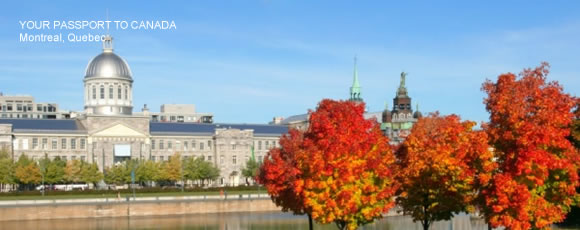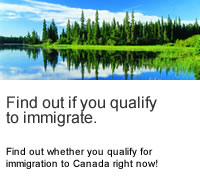
Spousal Sponsorship,
Immigration Consultants in Montreal, Quebec, Canada
The Canadian Immigration Council is a firm based in Montreal, Quebec, Canada and is one of the most reputable and oldest Canadian immigration consulting firms specializing in Canadian immigration law. The Canadian Immigration Council focuses on all areas of immigration law such as work permit applications, landed immigrant applications, Canadian citizenship applications, permanent resident applications and student visa applications. We also provide a full range of immigration litigation services with the help of our network of immigration professionals that includes regulated immigration consultants, paralegals, accountants, lawyers, business advisors and specialists in a variety of fields.
The Canadian Immigration Council has been voted the #1 immigration Consulting firm by the highly esteemed Leger & Leger group for three consecutive years for helping potential immigrants worldwide in achieving their dream of immigrating to Canada and for providing exceptional immigration services.
Spousal Sponsorship
Family reunification is one of Canada’s prime objectives. Processing times for the sponsorship of spouses, common-law partners and conjugal partners is relatively fast, although these applications can be quite complex. Applicants in Canada or outside of Canada may apply to be sponsored by their Canadian spouses, common-law or conjugal partners.
What Is The Sponsorship Process?
A Spousal Sponsorship application is a two-step process. The first step of the process entails processing by the Case Processing Centre in Mississauga, where officers assess the sponsor’s eligibility. The application is then transferred to a Canadian visa office that is responsible for applications in the spouse, common law or conjugal partners’ country of citizenship or country of permanent residence, where officers assess the genuineness of the relationship and the admissibility of the applicant
Can I Sponsor If I Reside Outside Of Canada?
A Canadian Permanent Resident must reside inside of Canada in order to sponsor a spouse or partner. A Canadian Citizen may reside either inside or outside of Canada while sponsoring; however, the sponsor in this case must establish the intention to return to Canada upon the approval of the Spousal Sponsorship.
Spouse or Common-Law Partner in Canada Class
The Spouse or Common-Law Partner in Canada Class was created by Citizenship and Immigration Canada to allow out of status spouses and common-law partners of Canadian citizens or permanent residents to apply for permanent residence from within Canada. Generally, out of status spouses and common-law partners are allowed to remain in Canada during the processing of their Spousal Sponsorship application. There are numerous exclusion clauses and specific steps must be taken to assess each case to ensure that applicants will qualify for a deferral of removal, if the case arises.
Conjugal Partner
A conjugal partner is an individual who has entered into a marriage-like relationship with the sponsor. The relationship must be exclusive of all others and have lasted for at least 12 months. Conjugal partners are individuals who have not been able to live together, not due to life choices, but due to extenuating circumstances against their control. A conjugal partner may be sponsored by a Canadian permanent resident or Citizen.
Do I Qualify To Sponsor A Relative?
While a sponsor must demonstrate that he/she is financially capable of sponsoring the relative, some exceptions apply. For example, when sponsoring a spouse or common law partner or a child, you may not need to meet the Low Income Cut-Off Mark (LICO) for sponsorship, although you may still be required to show that you can financially subsist in Canada.
What Are My Obligations As A Sponsor?
When submitting a Spousal Sponsorship application, the Minister of Citizenship, Immigration and Multiculturalism will require the sponsor to sign a three to ten year contract with its department to ensure that the sponsor will be responsible for all the essential needs of the sponsored relative without the assistance of social welfare resources.
Sponsorship Information - Did you know?
Did you know?
The minimum income requirement is waived for sponsors of spouses and common-law or conjugal partners. Both the sponsor and the spouse/partner can live in a foreign country while applying for Canadian spousal sponsorship. You will need to prove that you both intend to live in Canada. There are many factors that affect your eligibility to sponsor. Depending on the province where you live, there may be additional sponsorship requirements. If you have sponsored someone before and that person has requested government financial assistance, this can affect your application.
A marriage conducted in an embassy or consulate needs to comply with the law of the country, not the country the embassy is representing. Failing to disclose information to Citizenship and Immigration Canada (e.g. family members or not having them examined) will prevent you from sponsoring them in the future. This is called misrepresentation.
You will have to justify your claims and prove that your relationship is genuine.
You are not eligible to be a sponsor if you:
- Have not provided financial support for a previous sponsorship commitment,
- Are under 18 years old,
- Were married to someone else at the time of your marriage to the applicant,
- Have lived apart from each other and one of you has been in a common-law or conjugal relationship with a third person,
- Have an existing sponsorship agreement that has not yet expired.
Spouse Sponsorship Eligibility
You may be eligible to sponsor a spouse, a common-law partner, a conjugal partner or dependent children living outside of Canada if:
- You are 18 years of age or older;
- You are a permanent resident or Canadian citizen;
- The person you want to sponsor is a member of the family class;
- You currently reside in Canada;
- You and the person you are sponsoring both sign an agreement confirming that each of you understands your obligations and responsibilities;
- You sign an undertaking that promises to provide for the basic requirements of the person you are sponsoring and their dependent children (if applicable).
If you are a Canadian citizen not residing in Canada, you may sponsor your spouse, common-law partner, conjugal partner and/or dependent children who have no dependent children of their own.
As of March 2nd, 2012, if you have entered Canada under spousal sponsorship, you are not eligible to sponsor a new spouse or partner for a period of 5 years starting from the day you become a permanent resident in Canada. This applies to permanent residents as well as Canadian citizens.Spousal Sponsorship Application Types
There are two types of spousal sponsorship applications:
- Outside of Canada Spousal Sponsorship: The applicant lives outside of Canada. This is the fastest way to get an approved spousal sponsorship application. The spouse arrives in Canada after a permanent resident visa has been issued to them. The applicant can appeal in case of a negative decision by Immigration Canada.
- In-Canada Spousal Sponsorship: The applicant lives in Canada before and during the spousal sponsorship application. To qualify, the spouse must have legal status in Canada with a visa or a permit or be without status as long as there is no removal order.
Once a Canadian citizen or permanent resident applies to sponsor their spouse, this spouse applies for permanent residence in Canada.

About The Canadian Immigration Council
Richard Serour is the President and CEO of the Canadian Immigration Council. He is recognized as one of the leading immigration advocates and professionals in Canada and has devoted his life to working in order to help people around the world wishing to immigrate to Canada. Being an experienced immigration consultant, Mr. Serour has helped thousands of families fulfil their dream of coming to Canada and become permanent residents to eventually turn into proud Canadian citizens.
With an experienced staff and a full network of paralegals, consultants, lawyers and other support specialists, the Canadian Immigration Council has turned many people’s dreams into reality. Canada's Prime Minister Stephen Harper said it best: "Canada is the place where people want to come and stay, to learn, to pursue opportunities, to raise children, to enjoy natural beauty, to open new frontiers, to set the standard for the world for a high quality of life; a Canada that is a leader and example to the world."
We invite you to take advantage of our free online assessment today.
Although our assessment is free, the opportunity is priceless.
We wish you and your family success and happiness.




